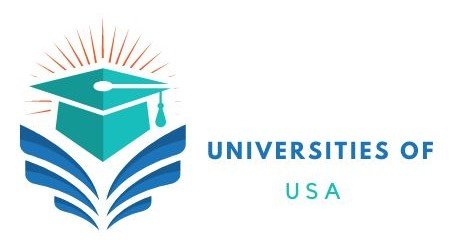Is Keiser University regionally accredited? Keiser University has been a significant name in the educational field, providing comprehensive, career-focused education to students for over 40 years. With the ever-rising interest in this institution, one pertinent question asked by potential students and parents alike is, “Is Keiser University regionally accredited?”
Yes, to address the question directly – Keiser University is regionally accredited. This affirmation of quality is conferred by the Southern Association of Colleges and Schools Commission on Colleges (SACSCOC), a credible regional accrediting body recognized by the U.S. Department of Education. This accreditation underscores the institution’s commitment to uphold the highest academic standards and its dedication to ensuring student success.
In the following sections, we delve deeper into what regional accreditation entails, the impact it could have on your educational journey, and why it is a key factor when considering Keiser University as your potential educational home. A detailed understanding of accreditation will enable you to make informed decisions about your future, ensuring you receive an education that is recognized and esteemed both nationally and internationally.
Table of Contents
Keiser University: What Does Regional Accreditation Mean?
- Regional accreditation is a stamp of assurance, reflective of the fact that a university meets specific standards of quality and integrity in its operations and offerings.
- It serves as a critical benchmark for students, parents, other educational institutions, and employers to gauge the quality of education provided by a university.
- This form of accreditation is typically overseen by a region-specific accrediting body, such as the SACSCOC, which evaluates universities in the Southern region of the United States.
- In essence, being regionally accredited implies that the university’s courses, faculty, and overall infrastructure have been assessed and found to be of high quality.
- This accreditation plays a significant role in a university’s reputation, impacting elements like the acceptance of transfer credits, eligibility for financial aid, and the perceived value of the degree by employers.
- For a university like Keiser, which prioritizes student success, regional accreditation signifies its commitment to delivering an education that is thorough, current, and valued in the professional world.
Impact of Keiser University’s Regional Accreditation

- Keiser University’s regional accreditation profoundly influences the student experience, shaping the educational journey in several ways. It assures students that they are investing their time and resources into a reputable institution recognized for its academic rigor.
- This form of accreditation is instrumental in facilitating the transfer of credits from Keiser University to other regionally accredited institutions. Therefore, students can seamlessly continue their education elsewhere if needed, ensuring their academic progress is not hindered.
- The regional accreditation also guarantees eligibility for federal financial aid. This crucial aspect opens up opportunities for various students who rely on these aids to finance their education, thereby making quality education accessible.
- Employers often view degrees from a regionally accredited institution like Keiser University with high regard. This gives graduates an edge in the competitive job market, enhancing their employability prospects significantly.
- Being regionally accredited also strengthens Keiser University’s reputation among other academic institutions. This recognition boosts opportunities for collaborative research, faculty exchange, and other academic partnerships.
- Lastly, regional accreditation symbolizes Keiser University’s dedication to continuous improvement. The institution is committed to regular reviews and updates of its programs, thus ensuring that the curriculum remains relevant and up-to-date.
Why is Keiser University’s Accreditation Important?
Choosing an accredited institution, such as Keiser University, is vital for your academic and career success. The accreditation serves as a recognition of the university’s quality and commitment to maintaining high educational standards.
- Accreditation boosts the legitimacy of your degree, ensuring that the qualifications you earn are acknowledged and respected by both educational institutions and employers globally.
- It facilitates credit transfer between institutions. If you choose to switch schools or advance your education, the process becomes smooth with credits from an accredited university.
- Accreditation signifies adherence to a rigorous curriculum that is regularly reviewed and updated, ensuring that you receive a relevant education and are in sync with industry trends.
- It also determines eligibility for federal financial aid — a significant aspect for students who rely on such aids for their education.
- Finally, accreditation augments the institution’s reputation, opening doors for collaborative research, faculty exchange, and academic partnerships.
Decoding Keiser University’s Regional Accreditation

- Keiser University’s regional accreditation is not merely a certification; it’s a testament to its excellence in delivering quality education. This accreditation reflects the high standards of the university, giving students the confidence that they are part of an esteemed institution.
- The regional accreditation serves as a beacon of trust for students, signaling that their academic journey at Keiser University is backed by rigorous educational standards and recognized by the U.S. Department of Education.
- Going beyond academic recognition, this accreditation ensures that each student’s financial investment in their education is truly worthwhile, opening doors for federal financial aid and making education more accessible.
- Prestige comes hand-in-hand with regional accreditation. With the Keiser University degree, graduates enter the job market with a highly-regarded qualification, enhancing their employability and career growth prospects.
- This accreditation galvanizes academic collaboration, turning Keiser University into a hub for intellectual exchange. It fosters partnerships with other institutions, enriching the educational experience for students and faculty alike.
- Lastly, the regional accreditation embodies Keiser University’s commitment to continuous improvement. The university invests in regular reviews and updates to its curriculum, ensuring students receive an education that resonates with the latest industry trends and developments.
Keiser University: Understanding its Accreditation Status
Keiser University’s accreditation status is a reflection of its commitment to delivering high-quality education. This recognition propels the university to a position of trust, prestige, and academic excellence.
- Keiser University’s accreditation acknowledges its dedication to maintaining stringent educational standards, fueling a culture of academic rigor and intellectual stimulation.
- This accreditation bolsters the university’s reputation, enhancing its prestige among academic circles and potential employers, and adding value to the qualifications earned.
- The accredited status ensures that the financial resources invested by students are validated, granting access to federal financial aid for eligible students.
- The accreditation fosters an environment conducive to academic collaborations, elevating the learning experience through diverse partnerships and faculty exchanges.
- Lastly, Keiser University’s accreditation exhibits its commitment to continuous improvement, regularly updating its curriculum to align with evolving industry trends and developments.
Conclusion Is Keiser University regionally accredited
In the realm of higher education, Keiser University shines as an accredited beacon of academic excellence and credibility. Its regional accreditation is not just a certificate, but a testament to its commitment to upholding high educational standards and fostering a rich, relevant learning environment. So, whether you are a prospective student or an ambitious professional, choosing Keiser University will set you on a path to achieving your academic and career goals with unparalleled confidence and competence.
FAQS
Q.01. Is Keiser University accredited for Nursing?
Yes, Keiser University is accredited for Nursing. It has received accreditation from the Commission on Collegiate Nursing Education (CCNE), ensuring the program meets quality and integrity standards. This accreditation testifies to the university’s commitment to producing competent nursing professionals.
Q.02. Is Keiser University APA accredited?
Yes, Keiser University is accredited by the American Psychological Association (APA). This accreditation acknowledges the university’s quality in delivering psychology programs that meet high educational standards. It also signifies that graduates are well-equipped with the knowledge and skills necessary to succeed in their professional careers.
Q.03. Is Keiser University for-profit?
Yes, Keiser University is a for-profit university. However, this does not affect the quality of education or the university’s accreditation status. The institution’s primary focus remains on providing students with valuable educational experiences and preparing them for successful careers in their fields of choice. So, prospective students can be assured that they will receive a quality education at Keiser University, regardless of its for-profit status.
Q.04. Did Keiser University lose accreditation?
No, Keiser University has not lost its accreditation. The university is accredited by the Southern Association of Colleges and Schools Commission on Colleges (SACSCOC) and maintains regular reviews and updates to uphold this accreditation status. Students can trust that they are receiving a credible education from an accredited institution at Keiser University.
Q.05. Is Keiser University legit?
Yes, Keiser University is a legitimate and accredited institution of higher education. It has maintained its regional accreditation for several decades and continues to receive recognition for its academic excellence in various fields. The university also boasts high graduation rates and successful employment outcomes for its graduates, further solidifying its legitimacy as an esteemed educational institution.

